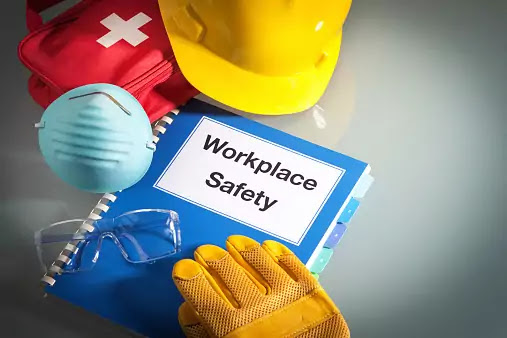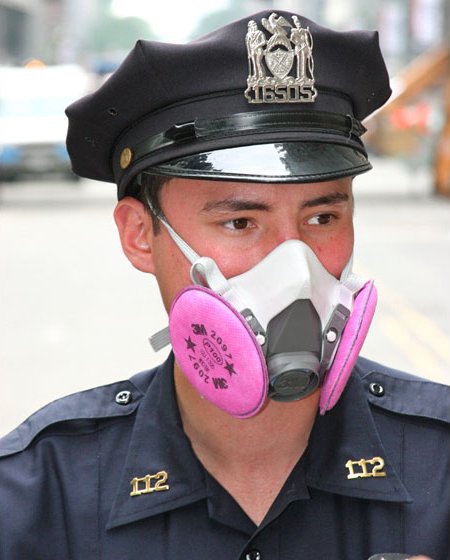Cleaning Safety

Introduction
Nobody likes cleaning. It’s a dirty job that has to be done, but it doesn’t have to be dangerous. With the right safety equipment and products, you can clean your home safely while keeping yourself and your family safe. Here’s a list of the items you should always have on hand when you’re cleaning around the house:
- Gloves: Gloves are important for protecting your hands from cleaning chemicals, bacteria, and other hazards that may be present when cleaning. You should wear gloves that are appropriate for the task you are performing (e.g., latex gloves for cleaning with chemicals, cut-resistant gloves for handling sharp objects). Make sure to use gloves that fit well and are in good condition, and replace them if they become damaged or worn.
- Eye protection: Eye protection, such as safety goggles or glasses, can help protect your eyes from splashes of cleaning chemicals, debris, or other hazards. Make sure to wear eye protection that is appropriate for the task you are performing, and clean or replace your eye protection regularly to ensure it remains effective.
- Respirators: Respirators can help protect you from inhaling harmful chemicals, dust, or other airborne hazards when cleaning. You should use a respirator that is appropriate for the type and level of hazard you are working with, and follow proper fit and usage instructions to ensure maximum effectiveness.
- Protective clothing: Depending on the task you are performing, you may need to wear protective clothing such as aprons, lab coats, or coveralls to protect your skin and clothing from exposure to cleaning chemicals, bacteria, or other hazards.
- Closed-toe shoes: Closed-toe shoes are important for protecting your feet from sharp objects, spills, and other hazards that may be present when cleaning. Make sure to wear shoes that are comfortable and provide good traction, and avoid wearing sandals, flip-flops, or other open-toe shoes.
- Cleaning tools: Make sure to use appropriate cleaning tools such as mops, buckets, squeegees, or scrub brushes to help reduce the risk of slips, falls, and other accidents while cleaning. Keep your cleaning tools clean and in good condition, and replace them if they become damaged or worn.
- First aid kit: Make sure to keep a first aid kit on hand when cleaning to address any injuries or accidents that may occur. The kit should include basic supplies such as bandages, antiseptic, and gloves.
Overall, using appropriate cleaning safety equipment can help protect you from a variety of hazards that may be present when cleaning. Be sure to choose the right equipment for the job, and follow proper usage and maintenance procedures to ensure maximum effectiveness.
Gloves

Gloves are a must-have for any cleaning job. They protect your hands from chemicals, prevent cuts and scrapes, and make it easier to handle items without getting them dirty. But there are many different types of gloves out there–and not all of them are created equal! Here’s what you need to know:
- Synthetic or natural? If you’re working with harsh chemicals or dangerous materials (like sharp edges), synthetic gloves will do the trick just fine. Natural materials like cotton offer more flexibility but won’t hold up as well against harsh cleaners or chemicals.
- What kind of protection do I need? If you’re dealing with toxic substances like bleach or ammonia, choose nitrile or neoprene gloves instead of latex ones–they’ll keep those nasty fumes out of your system better than anything else can manage! Also consider whether any part(s) of your body might come into contact with whatever substance is being handled before choosing which type(s) would work best under these circumstances; e.g., if someone were using an oil-based lubricant while fixing their car outside during wintertime weather conditions where temperatures drop below freezing levels then maybe wearing thick insulated rubber gloves might be better suited than thinner unlined ones since both heat retention/loss prevention AND moisture absorption/release capabilities would still prove beneficial despite not being able
Don’t pour chemicals down the sink or toilet. Follow the directions on chemical bottles.
Don’t pour chemicals down the sink or toilet. Follow the directions on chemical bottles, and use a bucket or sink to dispose of used chemicals. Don’t empty this bucket into your toilet!
Eye protection

When you’re working with chemicals and power tools, it’s important to wear safety glasses or goggles. This is also true if you work with glass or other sharp materials.
If you are planning on using any type of chemical cleaner, be sure that it is appropriate for use around children and pets (or both).
Dust masks and respirators

Dust masks and respirators are not the same thing. Dust masks are for dust, pollen and other large particles that can get into your nose and mouth. They’re disposable, so you’ll have to throw them away when they become clogged with dirt or debris. Respirators are used to protect from chemicals and other dangerous substances that may be in the air around you (like paint fumes). These reusable devices come in different forms based on how much protection they provide–you should choose one based on what kind of environment you’re working in:
- Half-mask respirators cover only part of your face; these are good options if you need some protection but still want good visibility while working
- Full facepiece models offer more protection against airborne particles and gases than half masks do
Ear protection
Ear protection is important to protect against loud noises. Not only can they be damaging to your hearing, but they can also cause tinnitus (ringing in the ears) and other problems that could affect your quality of life.
- Loud machinery (e.g., vacuum cleaners, lawn mowers)
- Power tools such as drills and saws
To choose ear protection that’s right for you, consider these factors: how much noise do you need to block out? Are you looking for something more affordable or more specialized? Do any of the products come with an extra feature like Bluetooth connectivity? How comfortable are these products when worn over long periods of time? And finally–how much money do I want/can afford right now?
Protective clothing, such as aprons and overalls.
You should always wear protective clothing when cleaning, like an apron or overalls.
This is because the chemicals used to clean your home can be very dangerous if they come into contact with your skin or eyes. If you don’t have any protective clothing and get some of these chemicals on your skin or in your eyes, it could cause burns and other injuries that could even lead to death!
If you want to avoid these kinds of injuries, make sure that you always wear some sort of protective gear when cleaning around the house so that none of those nasty chemicals will hurt you (or anyone else).
Don’t use bleach and ammonia in the same room
While you might be tempted to use bleach and ammonia in the same room, let me stop you right there. Both are strong chemicals that can cause serious health problems if you breathe them in or get them on your skin. In fact, they react with each other when mixed–and the resulting fumes are toxic! If this happens while you’re cleaning your home or office, it could lead to severe burns of the skin and eyes as well as respiratory distress (which means trouble breathing).
That said, we do realize that some folks still want to mix these two products together despite our warnings against doing so; so we’ll give those folks an alternative: just don’t do it! If you really want something that smells like bleach but won’t cause any problems if accidentally mixed with ammonia-based cleaners like Windex window cleaner or Pledge furniture polish…try Drano Max Gel Clog Remover instead!!
Ventilation tools, such as fans and vacuums.
Ventilation tools, such as fans and vacuums, are great for cleaning up dust.
- Use a vacuum with a HEPA filter to suck up the dust in your home.
- If you have an electric broom or broomstick, don’t use it on carpeted floors–you’ll just push the dirt around instead of getting rid of it! Stick to hard surfaces like tiles or wood floors when using these tools.
Always wear the proper safety equipment when cleaning.
Always wear the proper safety equipment when cleaning.
Safety glasses can protect your eyes from chemicals, dust and debris that might otherwise get into them, which could lead to an injury or infection. Gloves will keep you from getting chemicals on your skin and potentially causing burns (or worse). Dust masks and respirators are also important so that if there is some sort of danger in the air, it can filter through before reaching your lungs! Finally, protective clothing like aprons and overalls are good because they provide extra layers between you and whatever might be dangerous in a given area.
Conclusion
I hope this article has helped you to understand the importance of safety equipment when cleaning. The last thing you want is for your home to smell like bleach or ammonia, so make sure that you’re using proper ventilation tools when working in small spaces. Also, don’t forget about your pets and children! They should never be allowed near chemicals or other dangerous substances–they are too curious by nature and could easily get hurt if they come across something they shouldn’t touch. As always… instead of worrying about all this nonsense, let us worry about it for you!!! Contact Us

